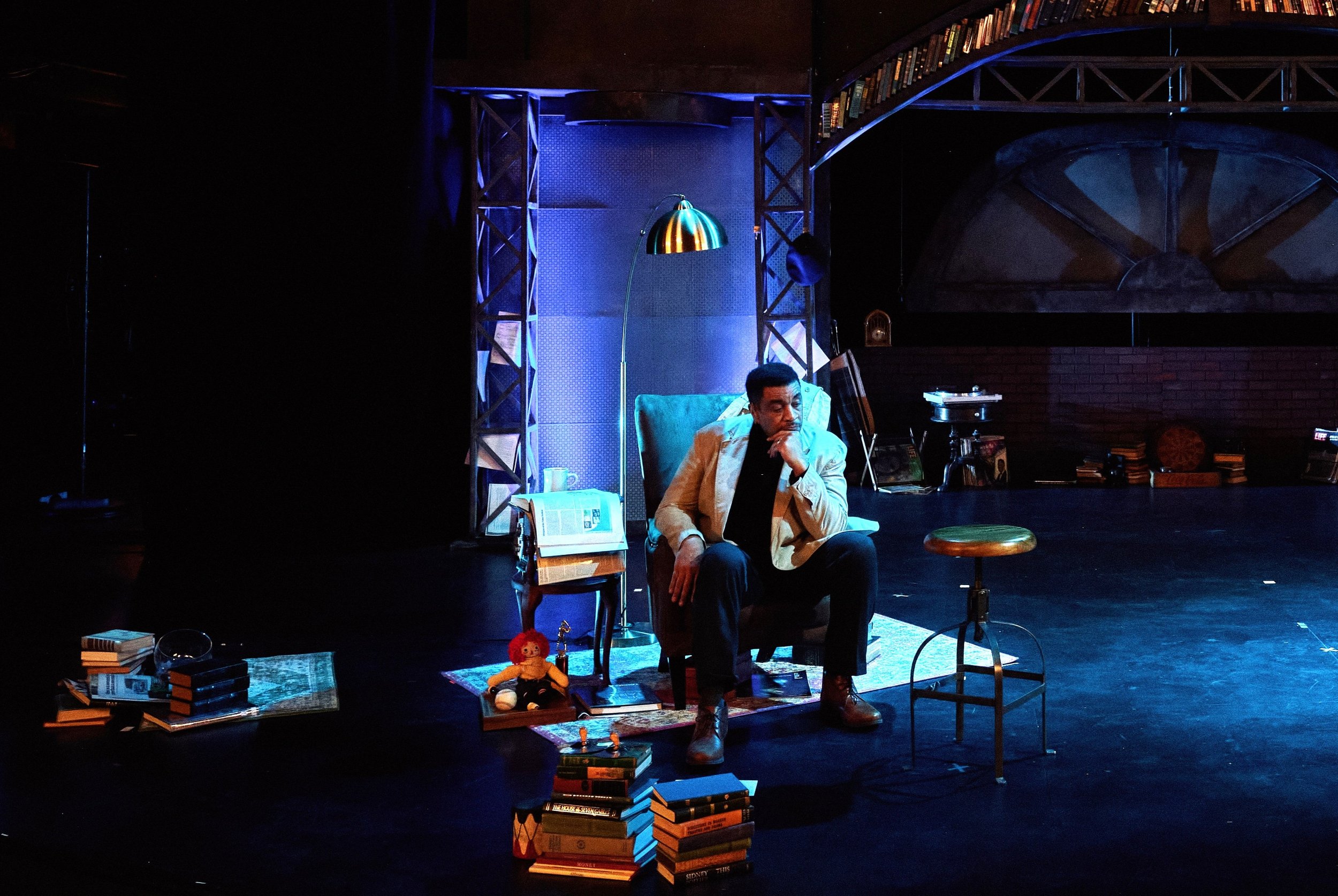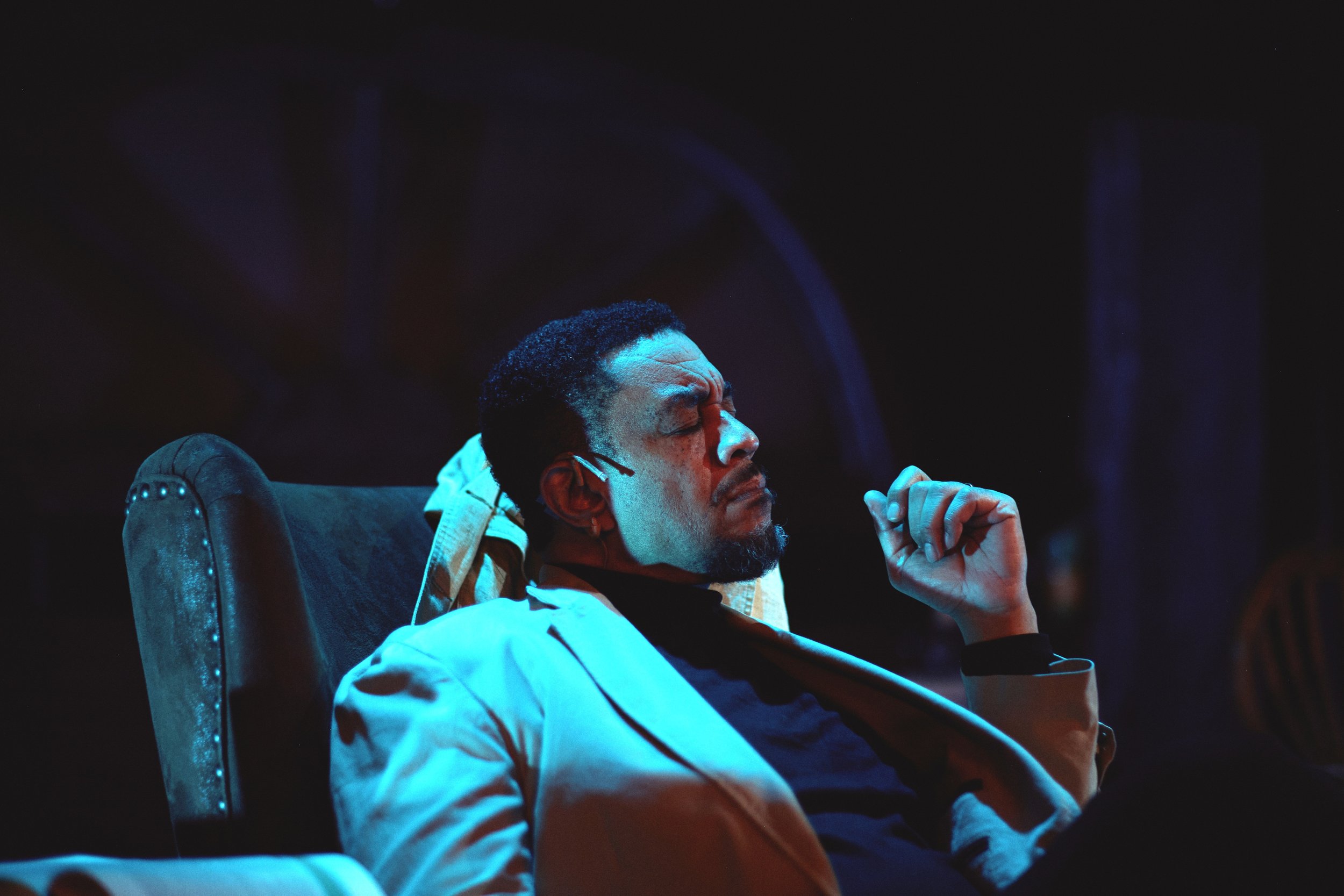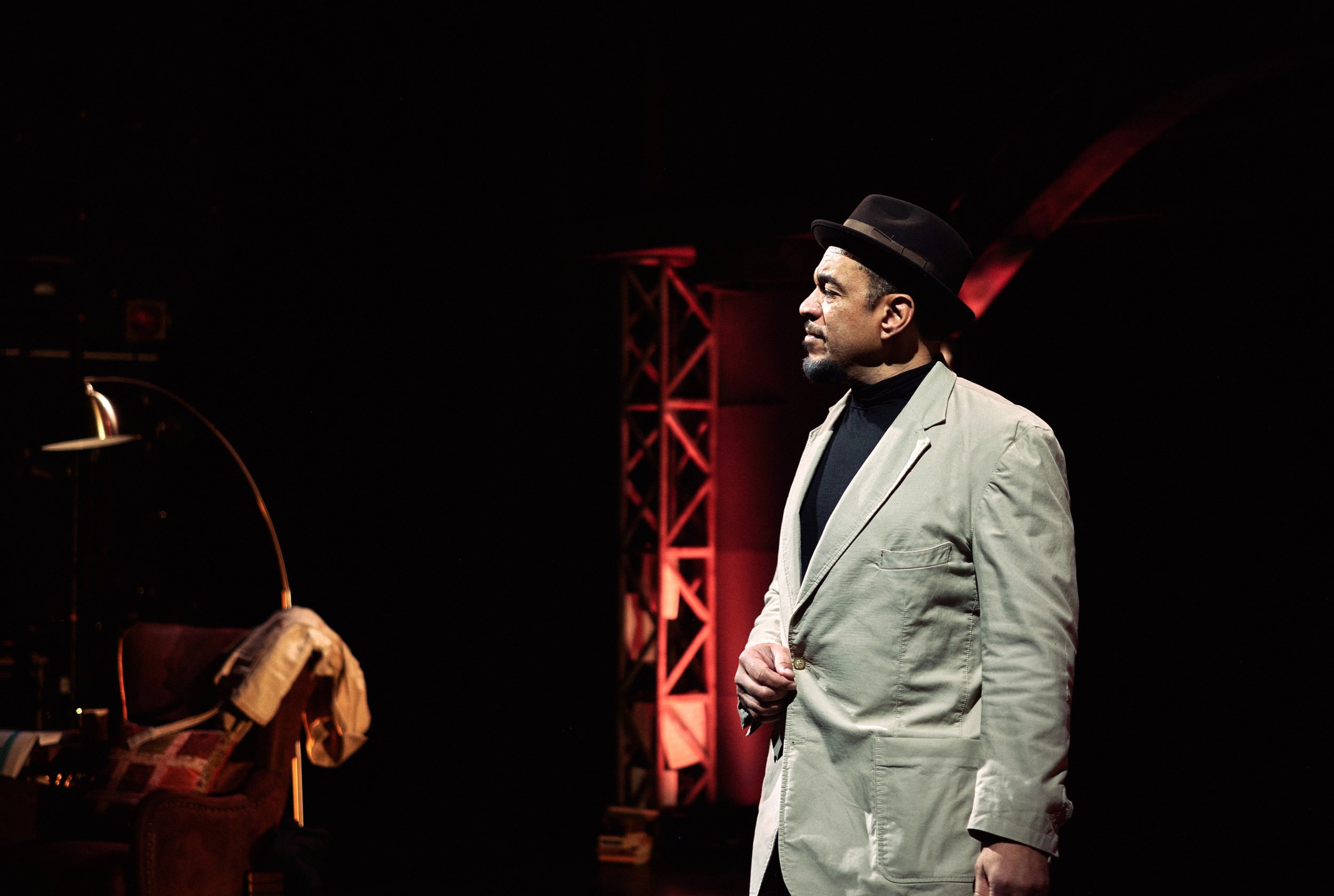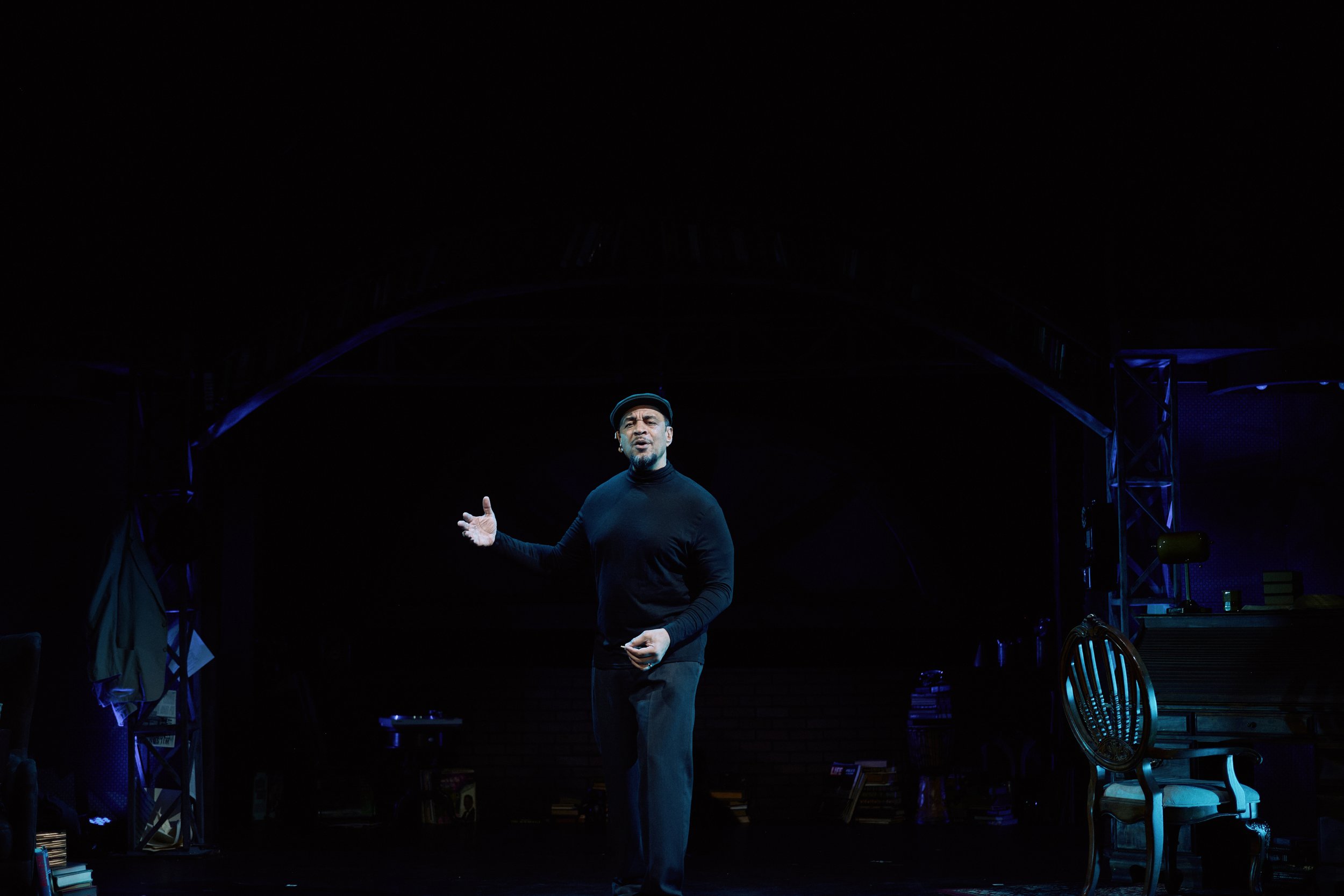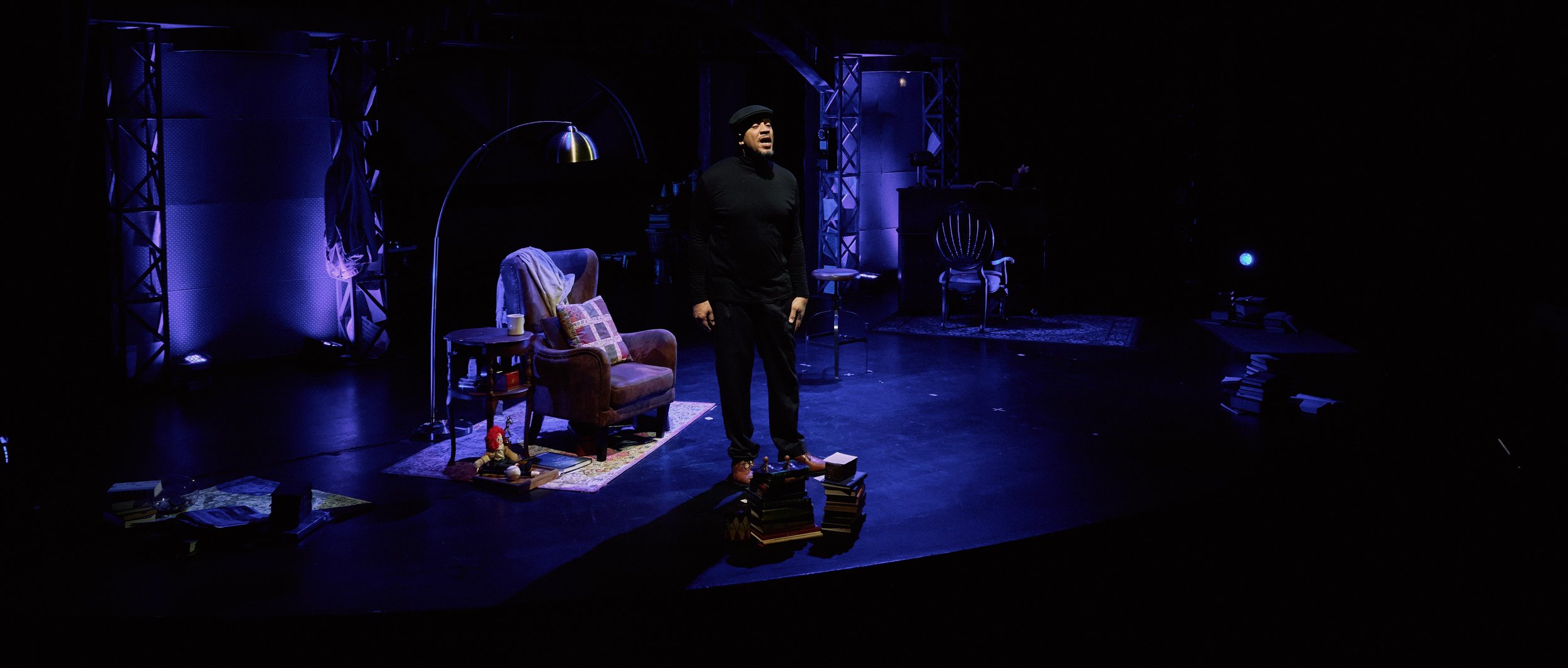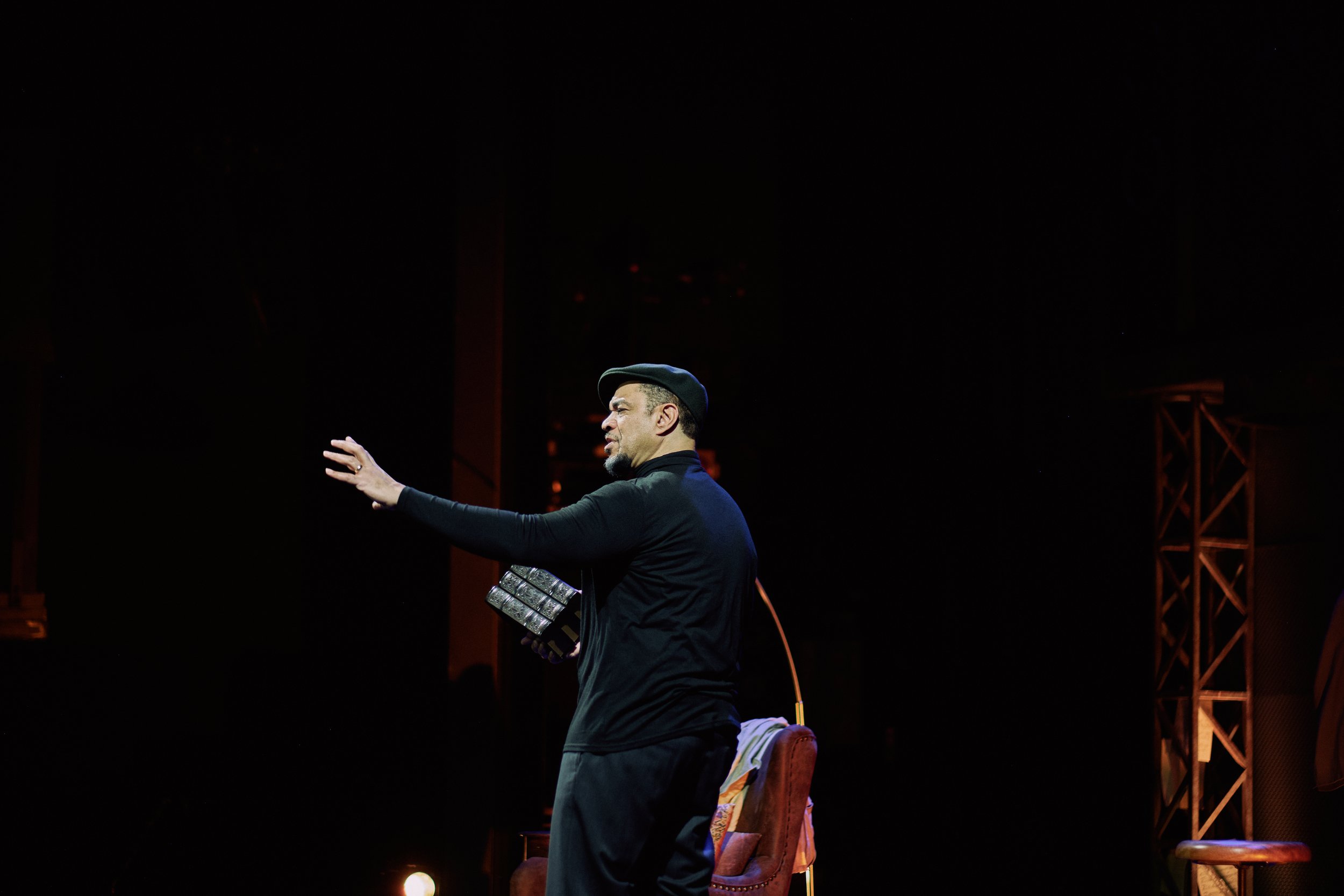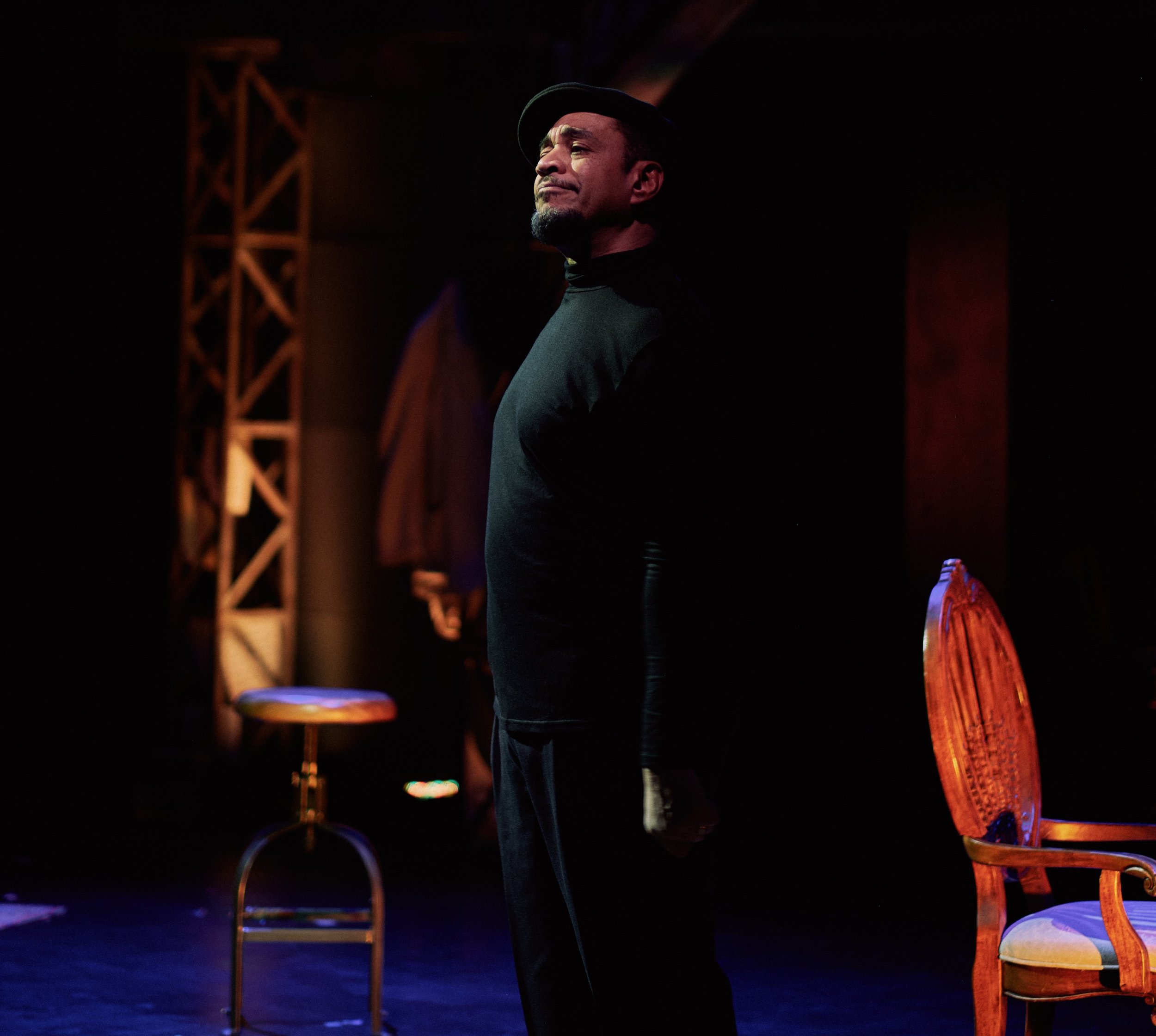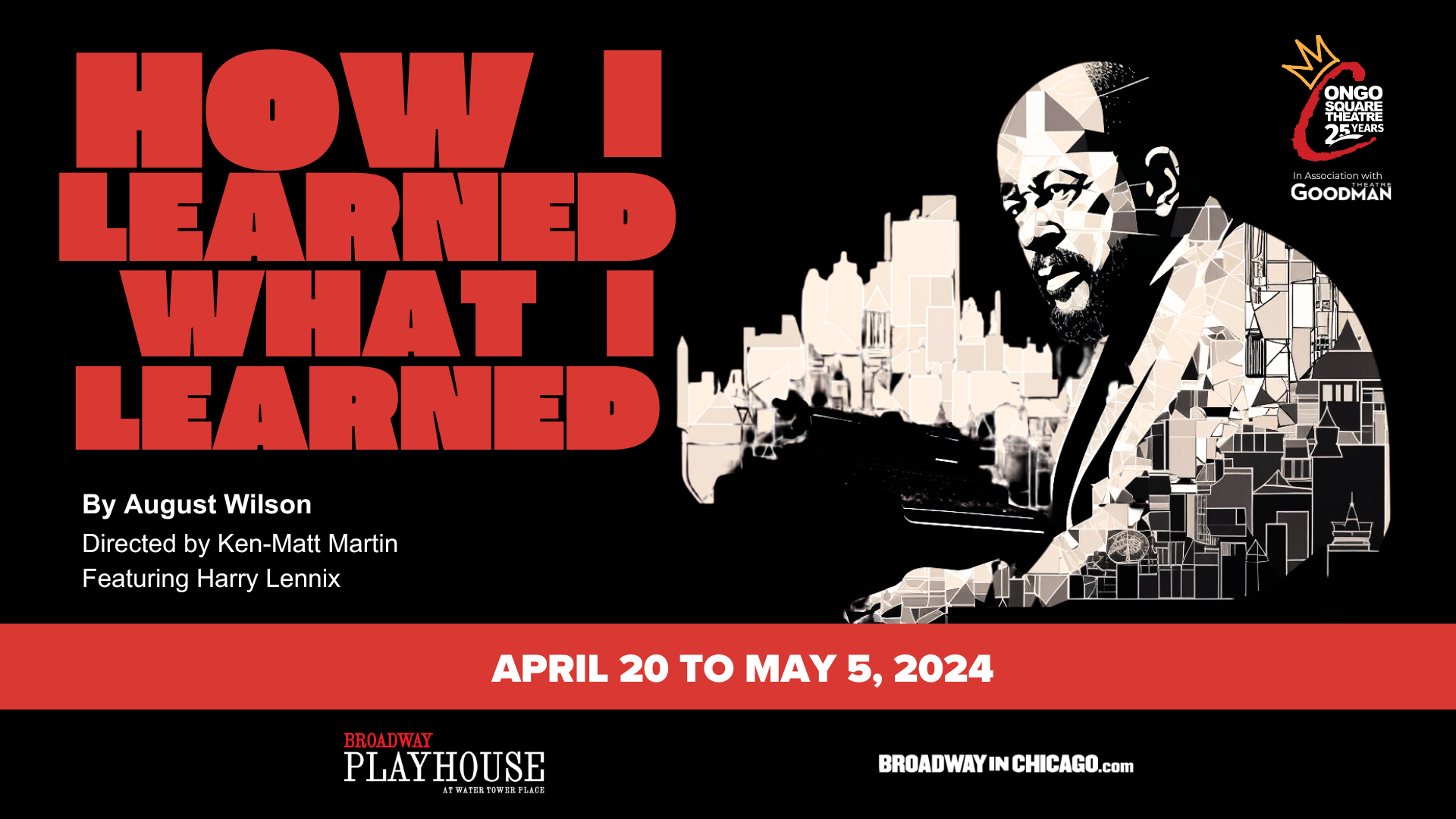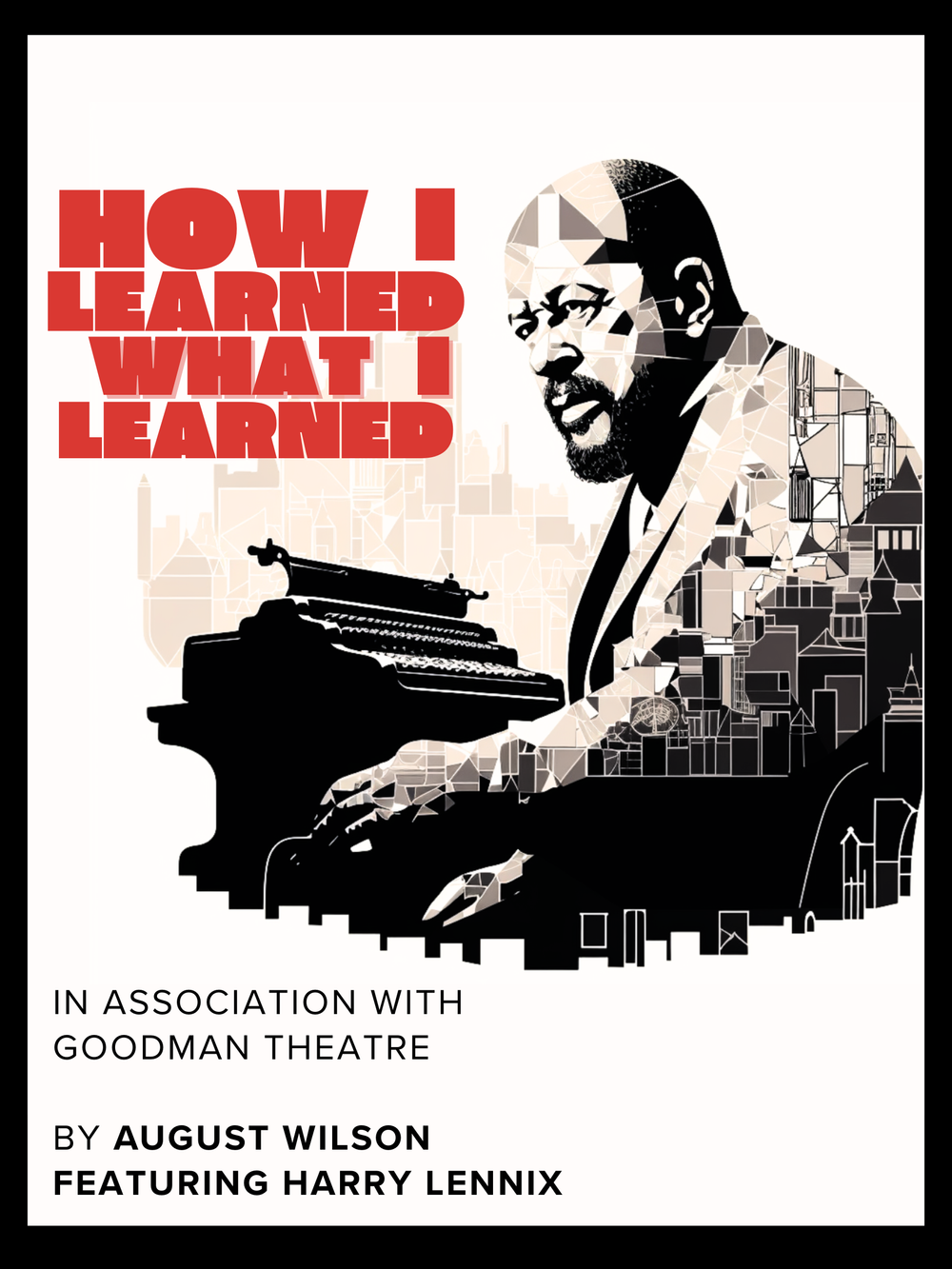How I Learned What I Learned
Referred to as the "Theater's Poet of Black America," playwright August Wilson is arguably one of American history's greatest playwrights. His plays talked about poverty, urban renewal, racism, elitist behaviors, differential educational systems, and how marginal people, blacks in America, overcome any obstacle to achieve the American Dream. Hill District was Wilson's muse for sharing the African-American struggles. Pat's Place and Eddie's Restaurant played an essential part in Wilson's life, using them as tutors to educate him about life. As a high school dropout, Wilson cultivated his innovative style on the streets of Pittsburgh. Through that upbringing, this master storyteller created powerful narratives that stir the soul, compelling characters that capture the heart, and provocative stories that distinctively left audiences profoundly spellbound, drastically altering the theatrical world.
“Have a belief in yourself that is bigger than anyone’s disbelief.”
August Wilson began his journey as a poet, accentuating his struggles and triumphs as a black artist within society's racial tensions and his visional experiences within his neighborhood. He honed his craft by listening to the voices within his surrounding communities, which played a big part in his writing on race, identity, love, honor, betrayal, and duty while embracing and connecting with all cultures. Wilson learned to read at four and discovered his passion for writing at the age of fourteen when stumbling upon the "Negro" section in the library, consisting of 40 books, which helped him realize that he was part of a tremendous yet unknown community of African-American people. Wilson never wrote anything from the beginning to the end, trusting that the characters would inspire and create the stories. He contributed his move from Pittsburgh to Minnesota via the Penumbra Theatre as the transformation that allowed him to hear, appreciate, and understand the Hill District voices and helped him create relatable characters and inspirational stories. August Wilson had several mentors and friends who helped him throughout his career. Mentor-director Lloyd Richards (the first African American to direct a play on Broadway) began a friendship that led to Richards directing Wilson's first six Broadway plays. Rob Penny, a fellow Pittsburgh poet, and playwright, worked together at the Black Horizons Theater and co-founded the Kuntu Writers Workshop. Lou Bellamy, founder and Co-Artistic Director of Penumbra Theatre and Mixed Blood theaters, and Terry Bellamy started in August Wilson's play "Two Trains Running" at the Penumbra Theatre. August Wilson is known for his ten plays (The Pittsburgh Cycle), which covers African-American history in the 20th century with none written in chronological order. He captured the urban style for each decade, allowing his audience to live within the moments of his characters and breathe the air of their struggles and conflicts by visually transporting us into that era without leaving our seats. His plays have won Pulitzer, Peabody, Circle, Tony, and Grammy awards; with his play, Ma Rainey was inducted into the Blues Hall of Fame and the Rock and Roll Hall of Fame and received a Grammy Award for lifetime achievement. However, How I Learned What I Learned isn't a part of this magnificent cycle series. This autobiographical narrative provides us with an inside look into the life of August Wilson. Directed by Todd Kreidler, Wilson performed this intimate glimpse into his historical life and self-exploration performance in 2003 at the Seattle Repertory Theater. Unfortunately, the theater world lost this incredible, remarkable, and renowned icon, August Wilson, in 2005 from Liver Cancer. Born to a German father, Frederick August Kittel Sr., and an African-American mother, Daisy Wilson. August, whose father was absent primarily, changed his last name to honor his mother. He gracefully challenged racism in America in How I Learned What I Learned through his encounters with Whites during employment, cashing a check, his accusations of being a part of burning down a grocery store, and speaking about John Coltrane and how whites, stunned into silence, surprised by his playing ability. The show delves into the intricacies of Wilson's adolescent and reckless years. His youthful immaturity was characterized by a sense of pride, a fiery temper, and a lack of discretion, leading to a series of unfortunate events which included the loss of numerous jobs, the alienation of a close friend, losing his apartment, a brush with the law, and, perhaps most alarmingly, a near-death experiences.
“Sometimes you’re lucky and you don’t even know it.”
Congo Square actor in the one-man production is Chicago's Harry Lennix, a board member who has directed at Congo Square and had a relationship with August Wilson. Harry Lennix is phenomenal, outstanding, exceptional, enthralling, and sensational. These are only a few superlatives I can use to describe Lennix's excellence in this one-person August Wilson performance. Lennix has been in more television shows (24, Billions, Black List, Emperor, Commander in Chief) and movies (The Five Heartbeats, Ray, Canal Street, Dollhouse, Chi-Raq, Stomp The Yard, Love & Basketball, Barbershop, and several Matrix movies) than I can count. Still, he hasn't performed theatrically in decades. He made his Broadway debut in August Wilson's Tony-nominated Radio Golf. He also starred in August Wilson's King Hedley II. Lennix is engaging, captivating, charming, funny, and provides the right amount of savvy and sincerity when needed — and he is one of the friendliest actors in the industry, staying to greet everyone after his performance. Lennix, who studied to become a Priest, has signed to his third original series on Pure Flix via a new series dubbed Destination Heaven, where he plays the role of God. Lennix also played the role of God in the 2015 movie 72 Hours, where Brenda and I first met him (Shameless Plug). He is also the leading actor in Steppenwolf's Purpose, directed by Phylicia Rashad, but has taken leave to perform at Congo Theatre, and amazingly, he will return after this production. Lennix's performance as August Wilson is mesmerizing, charming the audience with every word. You will be at the edge of your seat, witnessing his brilliant, making How I Learned What I Learned a Must-See show!
“I’m a black American playwright. I couldn’t be anything else. I make my art out of black American culture; they’re all cut out of the same cloth. That’s who I am; that’s who I write about.”
One of the show's highlights was a cleverly integrated typewriter into the performance, which was connected to a screen, adding an extra layer of visual interest for the audience. The text consisted of Lennix's spoken words, describing events, incidents, friends’ names, places he visited, experiences, and occasions. The play also included a unique element, with August Wilson's reading from the dictionary describing its interpretative meaning of black and white being woven into the storyline regarding the perception humanity believes about black and white people. The Chicago premiere of How I Learned What I Learned at Congo Theater via Broadway In Chicago's Playhouse Theatre is directed by Ken-Matt Martin. Martin, a native of Arkansas, is a co-founder of Pyramid Theatre in Iowa & former artistic director at the now-defunct Victory Gardens. Congo Square's 25th Anniversary brings them back to their roots by performing August Wilson plays. Martin, who once worked with former artistic director Sam Roberson during his first visit to Chicago, is excited that Congo has added the produced work of our mentor and theatrical father, August Wilson, who provided several resources to Congo Square through financial donations and assistance. Wilson's autobiographical show symbolizes their commitment to the August Wilson New Play Initiative (AWNPI), a program designed to provide opportunities for emerging African American playwrights.
How I Learned What I Learned and The Ground in Which I Stand, another August Wilson narrative that debated the idea of "colorblind casting" in the theater world, share common themes of cultural heritage authenticity through African-American voices. No one would have ever thought that this high school dropout, falsely accused of plagiarizing a paper on Napoleon, would one day become one of America's most renowned playwrights, except maybe August himself.
⭐⭐⭐⭐
Broadway Playhouse
Congo Square 25th Year Anniversary
How I Learned What I Learned
By August Wilson
Directed by Ken-Matt Martin
Featuring Harry Lennix
April 20 - May 5, 2024
For Tickets, click the Logo Above and for additional reviews, click below. Thanks for visiting Let’s Play…



